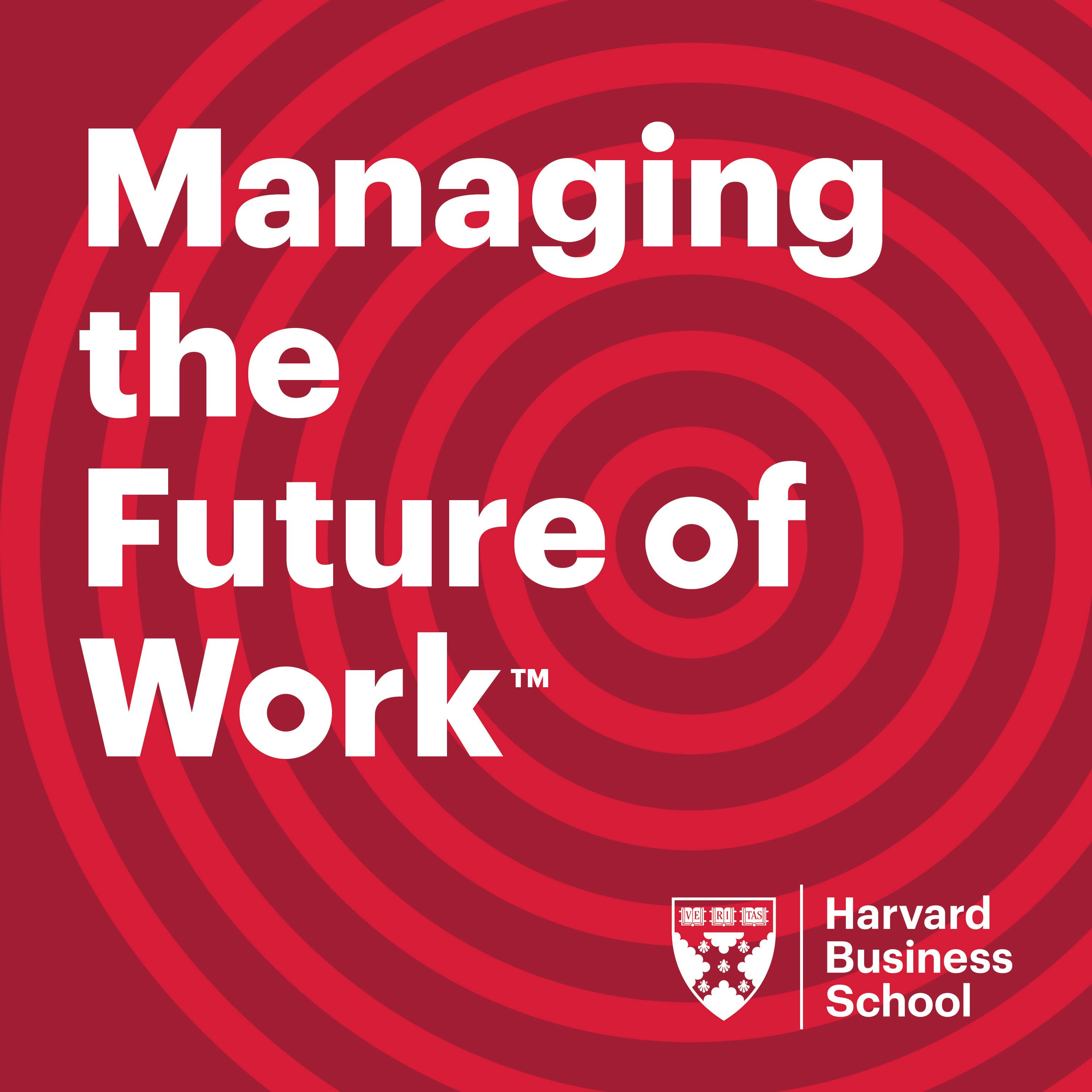

HBS Managing the Future of Work
Harvard Business School
Artificial intelligence. Robotics. The Gig Economy. Globalization. The world is changing at a dizzying pace in ways that will have a profound effect on the economy, jobs and the flow of talent. How will firms cope with the changes ahead and what steps do they need to take today? Each episode features faculty from the world’s leading business school interviewing CEOs, technologists and experts on the bleeding edge discussing how to survive and thrive by managing the future of work.
Episodes
Mentioned books

Mar 10, 2021 • 31min
Can AI and analytics deliver efficient, equitable skills markets?
As employers and job seekers cope with pandemic-induced disruption and uncertainty, the role of intermediary is more crucial than ever. Job platform CareerBuilder, with its two-sided skills market, looks to smooth the employment process and increase diversity. CEO Irina Novoselsky discusses the shift to skills-based hiring, demographic changes in the workforce, the benefits of well-informed AI, and how Covid and the gig economy are leading employers to make fulltime positions more flexible.

Feb 24, 2021 • 33min
Factoring high-skills freelancers into the enterprise equation
Digital platforms for highly skilled freelancers are set to broker more strategic engagements for businesses needing extra capacity and flexibility. HBS and Managing the Future of Work’s Joe Fuller and Boston Consulting Group’s Allison Bailey, co-authors of the report Building the On-Demand Workforce, join Bill Kerr. How can employers adapt their approach to talent and align management incentives to benefit from this trend? What are the implications for workers and what choices are policymakers weighing?

Feb 17, 2021 • 33min
The value of knowing what you’re about: HR, diversity, and work-life balance
Self-awareness can be a strategic asset for businesses and individuals alike, says Edith Cooper. The former Goldman Sachs partner reflects on the evolution of the employer-employee relationship, the benefits of cultivating diversity and individuality, and how a new generation of professionals looks for work-life balance and community amid social upheaval and economic change.

Feb 10, 2021 • 30min
Parsing 5G’s potential for work and learning
As the realities of 5G wireless networking and the Internet of Things catch up to the hype, the effects are expected to be sweeping, from smart infrastructure to enhanced education and training and new business models. Mo Katibeh, AT&T’s Chief Product and Platform Officer, helps break down implications for jobs, skills, and the future of work.

Feb 3, 2021 • 37min
MIT’s David Autor on engineering more equitable growth
MIT labor economist David Autor, co-chair of the Institute’s Task Force on the Work of the Future, discusses the initiative’s report, “The Work of the Future: Building Better Jobs in an Age of Intelligent Machines.” Describing the report as both optimistic and cautionary, Autor makes the case that the US needs to reinvest in innovation while supporting a more sustainable workforce transformation that broadens opportunity and narrows inequality.

Jan 27, 2021 • 32min
Reorienting work and learning around skills building
As work life morphs into an expanding series of limited engagements, education and training need to be retooled for the long haul. Workforce training expert Michelle Weise, author of the new book Long Life Learning: Preparing for Jobs That Don’t Even Exist Yet, says the sector needs to do a better job of accommodating the demands of the workplace and the realities of workers’ lives. Senior advisor to education venture fund Imaginable Futures and data collaboration platform BrightHive, the former Skidmore English professor deconstructs learning, hiring, and skills.

Jan 20, 2021 • 28min
Safely unleashing the power of industrial robots
The idea of uncaging industrial robots may seem like a Hollywood trope, but it refers to technology that allows manufacturers to choreograph more precise and productive interplay between robots and workers. Veo Robotics president, CEO, and co-founder, Patrick Sobalvarro, explains the state of the art in industrial automation.

Jan 13, 2021 • 31min
Keeping remote workers at the center of the action
Video conferencing and other communications technologies have been a lifeline for many during the Covid-19 pandemic. But they can exacerbate existing inequalities and create new ones. How can organizations help employees thrive in the post-Covid hybrid workforce of in-person and remote teams? Michael Peachey heads up the user experience (UX) group at RingCentral, which provides communications and collaboration tools and services. He says successful companies will fit the tools and tactics to the circumstances of their workers so remote doesn’t mean left out.

Jan 8, 2021 • 32min
How we can avoid the robot apocalypse
As AI and automation take on more and more sophisticated tasks, being human can look like a career liability. But not when you consider inherent advantages like our capacity to collaborate, create, and think critically. Jamie Merisotis, President and CEO of the Lumina Foundation and author of the new book Human Work in the Age of Smart Machines, explains the emerging ecosystem of jobs and how employers, educators, government, and the social sector can help workers prepare.

Dec 16, 2020 • 32min
Intermountain Healthcare: How Covid-19 catalyzes change
While hospitals battle on the frontlines of the Covid-19 pandemic, their business operations are adapting and evolving in ways that will outlast the coronavirus outbreak. Intermountain Healthcare’s roughly 40,000 employees staff some 200-plus businesses, from food service to operating rooms. The pandemic is accelerating the Utah-based non-profit’s adoption of telemedicine, digital platforms, and artificial intelligence. President and CEO, Marc Harrison discusses the company’s shift to remote work, employee support, re-skilling, and its efforts to address the crisis in healthcare affordability and access.


